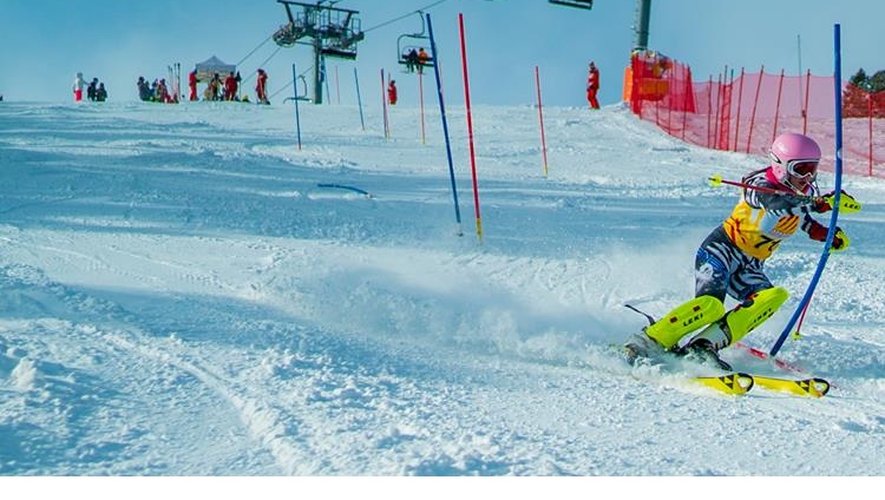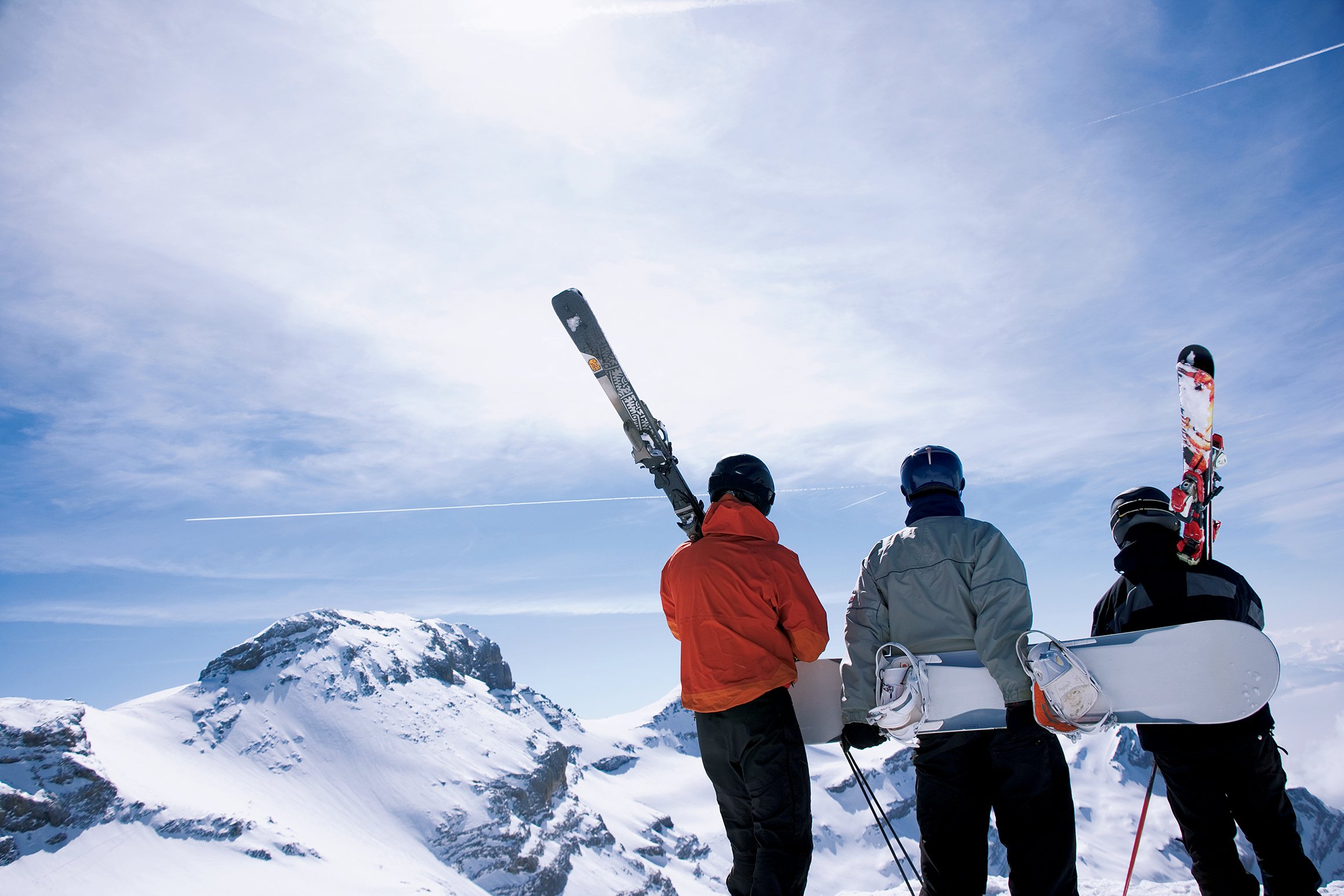
Skiing lessons for children are a great way of introducing the sport to them. Children can learn the basics and tricks of snowboarding from a trained instructor. These lessons will not only help them improve their skills but also spark their love for the mountains.
Snowboarding lessons work best for kids 7 years of age and older. These lessons require more balance and stamina that skiing. Young children are more motivated to learn. It is recommended that children start school early.
First, find a place where your child will enjoy learning. Decide whether to rent or buy equipment. Renting is typically more convenient. Renting can help you save money and keep your equipment in great condition. Generally, a season-long lease will cost under $150. When renting, it is important to make sure your child wears a helmet. Some kid's helmets come with an attachment for goggles.

You can also purchase packages that include helmets, and other essentials. You can buy them online. Prices will vary depending on when the equipment is purchased. You should ensure that the package includes a helmet as well as a complete package of ski/snowboard equipment.
The right clothing will be necessary for your child. Your child should wear clothing that is both snug and loose. Choose warm, comfortable shoes for your child. Your kid should wear two pairs of socks. Having more than one pair will help prevent blisters. In case your child gets wet, keep an extra pair of shoes in his/her bag.
A lift ticket is also required. Mountain High offers ski and snowboard lessons for children as well as rental. Children ages three to six are accepted into small group lessons. The lessons are age-appropriate, with a maximum of four or six riders per lesson. These lessons are available in AM and PM.
All children between the ages of five and fourteen can take both private and group lessons. Each lesson will consist of four hours. To check in, we recommend that you arrive at the lesson time. Once you have checked in, the lesson begins promptly at the appointed time. The lesson includes a break with supervision and lunch.

Sizes of boards for kids range from 90cm to 143.6cm. The boards are generally shorter and more maneuverable. Powder will allow a longer board to float in the powder better. Many boards designed for children have reverse camber construction. This helps them jump better.
While you can certainly purchase a ski or snowboard for your child, many people prefer to rent them. For this option, you will need to provide a $400 deposit. All lessons will require an Epic Pass. You may need a lift ticket depending upon where you live.
Ski and snowboard lessons can be booked online. You can book lessons online for the best rates.
FAQ
Do you ever worry about forgetting something when you travel?
Yes, I often forget stuff. This happens especially when I'm going on a short trip. But luckily, I always have everything with me, so I never run out of anything.
For example, my passport is always with me. I also make sure to have enough money for any purchase of tickets.
Also, my phone charger is always with I. For other items, I carry a small bag.
What snacks should I bring to the plane?
You have many options for snacks to take with you when flying. Consider bringing along any food that you are fond of while traveling.
You might pack chocolates or other sweet treats, such as crisps, biscuits, and nuts.
Perhaps you want something savory? You could pack some crackers or cheese.
Consider what type of drink you want to take on board. Perhaps you'd prefer something cold or hot?
You can bring any type of snack or beverage, but make sure you pack them securely.
This will ensure that your belongings are safe during transport.
How can I prepare my body to go on vacation?
It is essential to exercise and eat healthy while on vacation.
Be sure to stay hydrated and well rested before you leave home.
All necessary travel documents should be prepared.
Make sure you have enough medication to last you until your return.
In case of injury or sickness, always have an extra set of clothes.
Here are some things you should never forget about when traveling.
Traveling can be stressful. You'll often find yourself in situations where you have little time to make decisions. So be prepared to improvise.
You might be stuck somewhere for hours, days, weeks, or even months. If you have a plan, you'll be able to provide food, water, shelter and a place to rest. If you don't have a plan, you might have to make do.
In these cases, you'll probably have to rely on what you know how to do best. It means you have to be able to quickly make decisions based upon your experience and instinct.
Sometimes you don't have a choice. Sometimes, however, you will have to make do with what you have. In these cases, you will have to adapt quickly and respond to any situation.
It is important to remain calm, keep your eyes on the prize and be decisive. Don't panic. Instead, focus on what you can control.
You can choose which direction you want to go if you're lost among the woods. Or if you're hungry, you can eat berries or mushrooms. Rainwater can be drank or snowmelt.
If you are tired, you can take a break. You can wrap up if you're cold. You can also change your clothes if you are wet. Whatever your choice, staying positive will help you feel better.
How much luggage do I need?
The length of your trip will determine how much luggage you need. If you are flying, your hand luggage is limited to less than 20kg. For a bus or train ride, however, you will require more space.
You will receive a form with all the details about your flight when you arrive at airport. This form will contain information about your flight, such as the weight and assistance required when you check them in.
This must be done before you leave your home. You might find yourself stuck waiting in line for hours as everyone else inspects their luggage.
It's best to travel light, as you never know when something might happen. If your bag is lost or damaged, you will not have any clothes.
Statistics
- Pack sweaters, jackets, and underwear in reusable compression bags creating up to 75% more space in your luggage. (wikihow.com)
- Alcoholic beverages with more than 24% but not more than 70% alcohol are limited in checked bags to 5 liters (1.3 gallons) per passenger and must be in unopened retail packaging. (tsa.gov)
- You can use compression sacs or cubes to reduce the volume of your clothes by up to 80%—this is especially convenient for bulky items such as sweaters and jackets. (eaglecreek.com)
- Alcoholic beverages with 24% alcohol or less are not subject to limitations in checked bags. (tsa.gov)
- According to Maori legends, this park holds 14 fjords that were all carved by a giant stonemason with an adze. (busytourist.com)
External Links
How To
Which are the best travel tips and tricks for beginners?
It's an exciting time to travel, but there are many dangers you should avoid if your goal is to make it a safe and enjoyable experience.
These are some basics to help you plan your next trip.
-
Book early. The price of a booking is lower if it's made in advance. You'll also save money by avoiding last-minute deals offered by hotels and airlines.
-
Stay-at-budget accommodations. The best value for money is found in the cheapest hotels. They are typically located near shopping centers and public transportation.
-
Don't overpack. Pack light. Keep room for souvenirs. Make sure you bring clothes that fit well and don’t wrinkle easily.
-
Use common sense. If you're traveling alone, don't walk around late at night. Avoid dark neighborhoods or areas that are prone to crime.
-
You can take precautions to prevent theft. Keep valuables away from prying eyes. Don't leave anything valuable behind when you go swimming.
-
Be careful with cash. Tourists are often targeted by thieves in foreign cities. Avoid exposing your cash and only use ATMs in banks or other secured facilities.
-
You should know where you are. Be sure to learn how to use public transport in order not only do you need to book a hotel but also how to get there. You can find out more about popular attractions, restaurants, or other sights.
-
Learn about safety. Learn about local laws, customs, and culture before you arrive.
-
Have fun. No matter what happens, enjoy yourself. It's worthwhile.